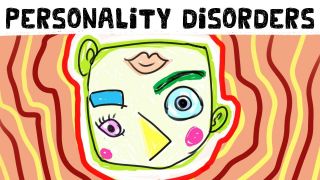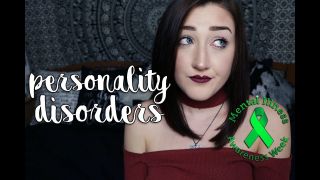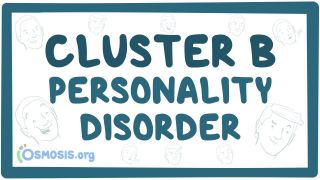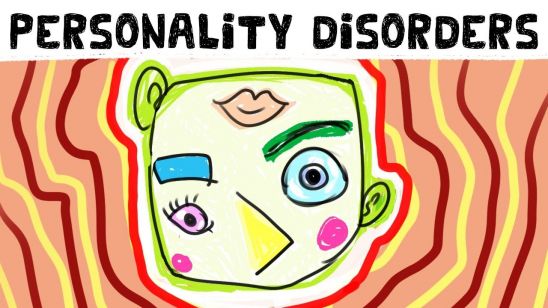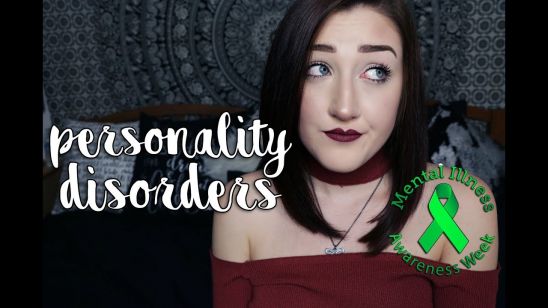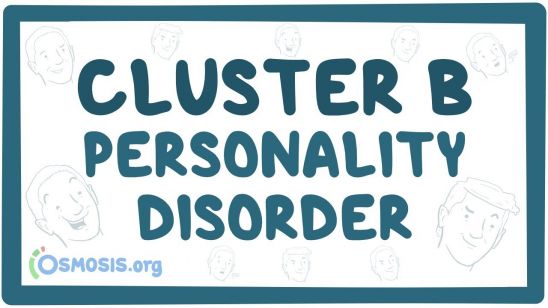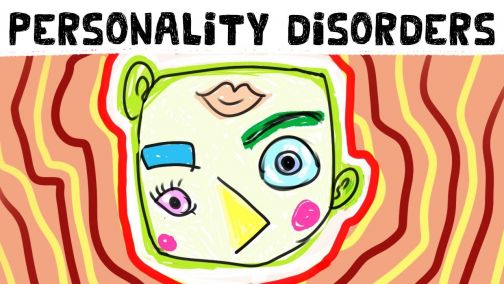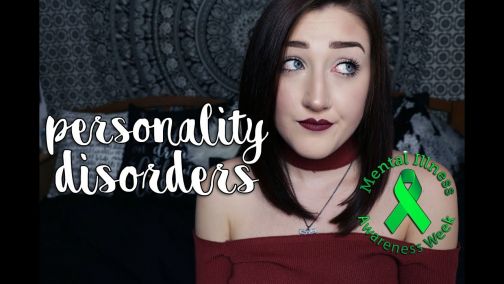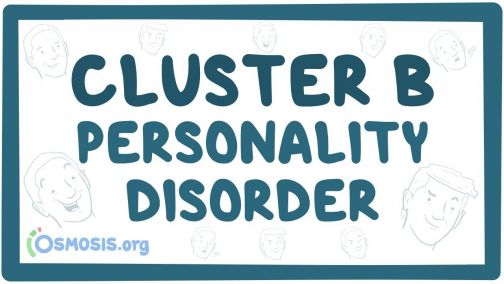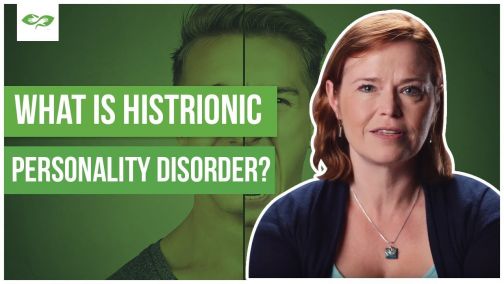Histrionic Personality Disorder
Also known as HPD
What is it?
Personality disorders are deeply ingrained patterns of behavior that violate social norms and cause problems in interpersonal relationships. They are broken into three categories — Cluster A, B and C.
Personality disorders are previously known as axis two disorders — a group of conditions that impact a person’s function in relation to others. They are ego-syntonic, meaning a person with a personality disorder often doesn’t believe they have a problem. The disorder is consistent with their world view, perception of others and perception of themselves. They usually begin during a person's teenage years or early adulthood, and in some cases, become less obvious in middle age. It is common for people with one personality disorder to have symptoms of another.
Histrionic personality disorder, also called HPD, is a Cluster B disorder. Cluster Bs are characterized by dramatic, emotional or erratic behavior. People with HPD want to constantly be the center of attention, and become angry or upset when they are not. They often engage in seductive behavior to attract others, and overdramatize scenarios.
HPD frequently occurs alongside other mental health conditions, including Major Depressive Disorder, depression, dysthymia, and other personality disorders like antisocial, borderline and narcissistic. It’s estimated that less than 2% of the U.S. population has HPD. It’s thought to be slightly more common in women.
What are the symptoms?
People with HPD are often considered flirtatious, attention-seeking and dramatic. They feel uncomfortable or unappreciated when they are not the center of attention. They often dress or act in provocative ways, including in settings where it’s inappropriate such as work or family gatherings. When denied or wronged, they tend to have strong emotional reactions. Despite their intense personalities, they are often very trustworthy and easily influenced by other people.
Additional symptoms include:
- Being overly concerned with their physical appearance
- Constantly seeking the approval of others
- Being gullible or easily convinced
- Acting very dramatically, almost as if they’re performing
- Using exaggerated expressions that lack sincerity
- Changing mood quickly
- Being extremely sensitive to criticism of disapproval
- Easily bored and often stopping things without finishing them
- Making rash decisions
- Being self-centered
- Not showing concern for other people and their needs
- Threatening suicide or self-harm to get attention
- Getting frustrated easily
- Struggling to maintain relationships
People with HPD tend to be high-functioning in their social and professional lives. However, they may use their social skills to manipulate others or make themselves the center of attention. HPD often impacts a person’s romantic relationships, and can make them bad at coping with failure, rejection and loss. It’s common for HPD to be comorbid with depression.
What are some common warning signs?
HPD is characterized by dramatic, suggestive and self-centered tendencies. Because of this, a loved one with HPD might display noticeable symptoms at home, at work or in social settings. Pay attention to their emotional reactions, social habits and relationships with others. Ask yourself the following questions:
- Do they fear being alone or abandoned by family, friends and partners?
- Are they flirtatious at inappropriate times, such as with coworkers?
- Do they put on public displays of sadness or happiness that seem forced or fake?
- Do they get jealous easily?
- Are they overly concerned about how they look when attending casual events or running errands?
- Do they make impulsive decisions, such as spending lots of money or having sex with lots of people?
- Do they get frustrated when people can’t hang out, have work to get done, or don’t act “spontaneous” enough?
- Are they quick to trust new people, and get swept up in exciting ideas or opportunities very easily?
None of these behaviors confirm an HPD diagnosis, but they do hint at one. If you feel comfortable doing so, talk to your loved one about this behavior and why you’re concerned. Keep in mind that symptoms aren’t always obvious. People battling chronic mental health conditions often learn to hide their pain from others. It’s possible to appear outwardly fine, while facing mental difficulties in secrecy.
What causes HPD?
The exact causes of HPD are unknown. Doctors believe a range of factors play a role in its development, including being genetically predisposed (i.e. other family members struggle with HPD or other mental disorders), having highly responsive noradrenergic and norepinephrine systems, or having been raised by parents that failed to punish them or rewarded dramatic, self-centered qualities.
How is it treated?
The primary treatment method for all personality disorders, HPD included, is psychotherapy (aka talk therapy). However, people with HPD often refuse help because they don’t see their behavior as problematic. Instead, they may seek out solutions for co-occurring disorders like depression.
Medications are not commonly used to treat personality disorders. However, they may be recommended to address severe cases or symptoms that stem from co-occurring conditions.
Common medications include anti-depressants such as SSRIs or SNRIs, anti-anxiety medications (aka Benzodiazepines) and mood-stabilizers.
It’s important to remember that treatment plans are personalized. If you’re seeking help, make sure you work one-on-one with a doctor to create a plan that fits your needs. Just because a medication or therapy helps someone else recover, doesn’t mean it’ll be the right solution for you. Don’t ever feel guilty about asking for help, taking meds or going to therapy. Addressing your mental health is a productive and courageous thing to do.
How can I help a loved one with HPD?
Caring for someone with HPD is not easy. You might feel as if they value outside approval more than your needs. Or that they’d be willing to turn on you for other people or opportunities. It’s important to remember that their behaviors are not a reflection of your self-worth.
It can also be hard to know how to support them. Do they want to talk about their behavior? Will they push you away if you try to help? There are no easy answers to these questions. Every person handles their mental health differently. That said, we all want to feel loved and supported. Showing someone that you’re invested in their wellbeing can make a world of difference.
Here are some ways to do so:
- Educate yourself: Read up on symptoms, treatment options, and healthy living recommendations. Try and understand what your loved one is going through so you are better equipped to talk to them about it. This will also make you a valuable resource when it comes time to find treatment.
- Advocate treatment: Asking for help can be hard. Societal stigma often keeps people from opening up to others about their symptoms. Support your loved one by helping them research different treatment methods, or doctors in their area. If they’d like, go to a few sessions with them. Remind them that there’s nothing weird about getting help, and that you’re proud of them for following through.
- Tell them you care: Let them know that you love them and are there for them. Compliment them when they look good or do something well. People with HPD are often self-conscious and insecure. These acknowledgements will be reassuring.
- Set boundaries: You want to be understanding of their symptoms, but that doesn’t mean you have to put up with everything. Make rules for what you will and won’t tolerate. Stick to these boundaries and follow through on consequences when they’re broken.
- Be patient: Don’t take it personally if they lash out at you. They are battling something that’s very hard to overcome. Their distance has nothing to do with who you are as a person. Keep showing up for them even when it feels like it’s not helping. The act alone lets them know that they have people in their life who care.
What other resources are out there?
Want to learn more, find a doctor, join a support group or speak to a counselor? The below resources might be able to help:
- New England Personality Disorder Center
- Emotions Matter
- Crisis Text Line
- BetterHelp
- Psychology Today Directory
- American Psychiatric Association
- Medicaid Eligibility Information
- Open Path Collective
- Resources for POC, LGBTQ+ and disabled individuals
- Anxiety and Depression Association of America
- National Network of Depression Centers
- Medicine Assistance Tool
- NeedyMeds
- Erika's Lighthouse
- Anxiety Network
- Anxiety Central Forums
- National Social Anxiety Disorder Center
- International Society for the Study of Trauma & Dissociation
Support our work
We’re on a mission to change how the world perceives mental health.

